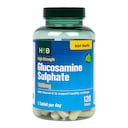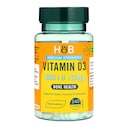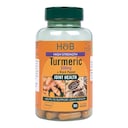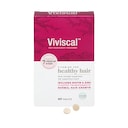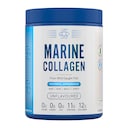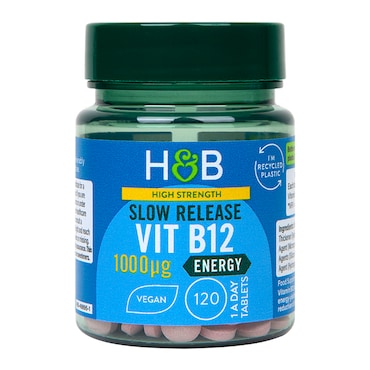Vitamins & SupplementsVitamins & Supplements Shop AllHair, Skin & NailsCollagen & SilicaMuscle Support & Joint PainDigestive HealthMagnesiumFunctional MushroomsVitaminsShop all VitaminsMultivitaminsVitamin AVitamin BVitamin CVitamin DVitamin EVitamin KVitamin DrinksMineralsShop all MineralsMagnesiumIronZincCalciumSeleniumChromiumSupplementsShop all SupplementsFibre SupplementsAcidophilus & Friendly BacteriaPeppermint OilGrapeseed ExtractLecithinCollagen & SilicaOmega & Fish OilsPlant Sourced SupplementsSuperfood SupplementsArnicaApple CiderRaspberry KetonesAloe VeraChondroitin & MSMCo Enzyme Q10Evening Primrose OilGarlicGinkgo BilobaGlucosamineGlucomannanSeaweed, Kelps and Aquaceuticals5 HTPDigestive EnzymesSaw palmettoCharcoalConditionShop all ConditionCholesterolAllergy & Hay Fever CareAnxiety SupportBone & Muscle HealthMuscle Support & Joint PainBrain & Memory SupportWomen's HealthMen's HealthChildren's HealthCold & Immune SupportFatigueDigestive HealthHair, Skin & NailsHeart & CirculationLiver CareMood SupportSexual HealthSleep & RelaxationStress ReliefVisionWomen's HealthShop all Women's HealthPerimenopauseMenopauseMenstrual SupportUrinary Tract HealthPregnancy & ConceptionMen's HealthShop all Men's HealthProstate HealthChildren's HealthCBD Vitamins & SupplementsShop all CBD Vitamins & SupplementsCBD OilCBD CapsulesCBD GummiesHerbal & Licensed RemediesShop all Herbal & Licensed RemediesRescue RemedyAshwagandhaMilk ThistleGinseng & GuaranaHomeopathic & Flower RemediesShop all Homeopathic & Flower RemediesRescue RemedyTissue SaltsFlower RemediesHomeopathic RemediesAt-Home TestsVegan Vitamins & SupplementsCBD HomeopathicHolland & BarrettVitabioticsSolgarNew Leaf ProductsNovominsNew NordicBioglanCannarayWeledaNatures Aid3 For 2 Mix & MatchChristmas SaleSave up to 1/2 PriceBuy 1 Get 1 FreeBuy one get one 1/2 priceOutletFree GiftBetter than 1/2 PriceGluten FreeDairy FreeSugar FreePalm Oil FreeSoya FreeWheat FreeNut FreeAlcohol FreeSesame Seed FreeEgg FreeLion's Mane MushroomApple Cider VinegarReishi MushroomCollagenChaga MushroomArnicaMaitake MushroomAstragalusCastor OilCordyceps MushroomNew inFood & DrinkFood & Drink Shop AllDried Fruit, Nuts & SeedsShop all Dried Fruit, Nuts & SeedsDried FruitNutsSeedsMixesChocolate CoatedHealthier SnackingShop all Healthier SnackingSweet SnacksSavoury SnacksLow Calorie SnacksChocolateCrisps & ChipsCrackers & CrispbreadsBiscuits & CookiesSnack BarsFlapjacksLiquoricePopcornSweets & MintsChocolate Coated SnacksTeas, Coffee & Hot BeveragesShop all Teas, Coffee & Hot BeveragesCoffee & Coffee SubstitutesMushroom DrinksHot ChocolateTeasSuperfood TeasMatcha & Green TeaHerbal TeaPeppermint TeaSleep & RelaxationSlimming TeaWomen's Health TeasSuperfoodsShop all SuperfoodsSuperfood BlendsSupergreensMoringaMacaSpirulinaChia SeedsFlaxseedGoji BerriesBaobabDrinks & JuicesShop all Drinks & JuicesMultipack DrinksJuices & Health ShotsNatural Energy DrinksCoconut WaterKombuchaCBD DrinksSoft DrinksWaterAlcohol Free DrinksProtein ShakesFood CupboardShop all Food CupboardApple Cider VinegarCondiments & SaucesMeat-Free AlternativesSoup & Ready MealsRice, Pasta, Pulses & GrainsGravy, Broths & StockManuka HoneyBreakfast CerealsShop all Breakfast CerealsCereals, Bran & FlakesGranolaMuesliOats & PorridgeBreakfast BarsHoney, Jams & SpreadsShop all Honey, Jams & SpreadsManuka HoneyHoneyNut ButtersJams & ChutneysSyrupsSpreadsPateHome BakingShop all Home BakingBaking IngredientsBaking MixesBreadFlourSweeteners & Sugar AlternativesEgg SubstitutesCookingShop all CookingCooking IngredientsApple Cider VinegarCondiments & SaucesMeat-Free AlternativesSoup & Ready MealsRice, Pasta, Pulses & GrainsTinned FoodsHerbs, Spices & SeasoningGravy, Broths & StockVegan Food & DrinkShop all Vegan Food & DrinkMeat-Free AlternativesDairy Free DrinksEgg SubstitutesVegan ProteinVegan Protein BarsDairy Free DrinksNutritionally Complete FoodHolland & BarrettNaturyaBionaBio & MeNakdPerfectTedTwiningsHeath & HeatherEgmont HoneyManuka DoctorSave up to 1/2 Price3 For 2 Mix & MatchChristmas SaleBuy one get one 1/2 priceBuy 1 Get 1 Free2 For £5 Mix & MatchBetter than 1/2 PriceOutletGluten FreeDairy FreeSugar FreeWheat FreeEgg FreeNut FreeMilk FreeSesame Seed FreeSoya FreeCelery FreeLion's Mane MushroomApple Cider VinegarReishi MushroomChaga MushroomTremella MushroomTrumpet MushroomNew inSports NutritionSports Nutrition Shop AllProteinShop all ProteinWhey ProteinClear ProteinMass GainersVegan ProteinDiet ProteinCaseinCreatineShop all CreatineCreatine PowderCreatine CapsulesCreatine GummiesCreatine LiquidFlavoured CreatineSports SupplementsShop all Sports SupplementsFat BurnersAmino AcidsVitaminsTestosteroneGreensSports CollagenHydration & GelsShop all Hydration & GelsEnergy GelsElectrolytesNutritionally Complete FoodPre Workout & EnergyShop all Pre Workout & EnergyPre WorkoutCaffeine Free Pre WorkoutAmino Energy PowdersBars, Drinks & SnacksShop all Bars, Drinks & SnacksEnergy BarsProtein BarsProtein ShakesProtein SnacksAmino AcidsShop all Amino AcidsAmino Energy PowdersBCAAL-LysineGlutamineCarnitineArginineMeal Replacement ShakesVegan Sports NutritionShop all Vegan Sports NutritionVegan ProteinVegan Protein BarsVegan Pre Workout & EnergyVegan Amino AcidsVegan CreatineSports AccessoriesShop all Sports AccessoriesBottles & ShakersFitness EquipmentApplied NutritionOptimum NutritionPrecision EngineeredMyproteinUSNHuelGrenadeYfoodTriActiveSiSSave up to 1/2 PriceChristmas Sale3 For 2 Mix & MatchBetter than 1/2 PriceBuy 1 Get 1 FreeBuy one get one 1/2 priceOutletGluten FreeSugar FreeDairy FreeSoya FreeCelery FreeCereal FreeCrustaceans FreeEgg FreeFish FreeKiwi FreeApple Cider VinegarNew inBeautyNew inCetaphilAveenoDr OrganicFaith in NatureWeledaNaturtintTisserandQ+AMiaromaSukinFree Gift3 For 2 Mix & MatchChristmas SaleSave up to 1/2 PriceBuy 1 Get 1 FreeOutletShort Dated January 2026Alcohol FreeFluoride freeParfum FreeGluten FreeDairy FreeSoya FreeSugar FreeVitamin CLavenderAloe VeraTea TreeRosehipRosemaryArgan OilHyaluronic AcidVitamin ESalicylic AcidAgeingSensitive SkinDry SkinDehydrated SkinCombination skinBreakout prone skinMature skinFine Lines & WrinklesDull SkinUneven Skin TextureAll Skin TypesDry SkinNormal SkinSensitive SkinDehydrated SkinCombination SkinMature SkinOily SkinEczema prone skinBreakout prone skinScalp CareHydratingAnti FrizzShineHair LossThinningVolumeChemically TreatedAnti DandruffAll Hair TypesDry HairNormal HairDamaged HairDry ScalpFine HairAfro & TexturedOily HairColoured HairFace the FutureBeauty GiftsBeauty Shop AllSkincareShop all SkincarePremium SkincareFace CareBody CareSun CareTanning & BronzingEye CareLip CareFoot CareHand & Nail CareSkin AilmentsSkin OilsCBD BeautyFace CareShop all Face CareCleanser & TonerFace MoisturiserFace Oil & SerumFace WashFace Exfoliators & ScrubsFace MasksHair CareShop all Hair CareShampoo & ConditionerHair ColouringHair MasksHair Oil & SerumHair AccessoriesHair Spray, Gel & MousseCollagen & SilicaHair, Skin & NailsWashing & BathingShop all Washing & BathingShampoo & ConditionerBathing AccessoriesFeminine CareShower Gel & Body WashDeodorantDentalHand WashSoapBath Soak & OilBody ScrubBath Bombs & SaltsIncontinence SupportAromatherapy & HomeShop all Aromatherapy & HomePure Essential OilsBlended Essential OilsBase & Carrier OilsHolisticMother & BabyShop all Mother & BabyBaby Skincare & ToiletriesElectrical WellnessWeight ManagementWeight Management Shop AllFat Burners, Binders & Appetite SuppressantsShop all Fat Burners, Binders & Appetite SuppressantsFat BurnersFat BindersAppetite SuppressantsSlimming TabletsWeight Management ShakesShop all Weight Management ShakesMeal Replacement ShakesDiet ProteinDiet Food & DrinkShop all Diet Food & DrinkSlimming TeasHealthier CookingLow Calorie SnacksFruit, Nuts & SeedsJuices & Health ShotsApple Cider VinegarExercise SupportShop all Exercise SupportFitness EquipmentMeal Replacement ShakesDiet ProteinProtein BarsHolland & BarrettHuelUSNNew NordicEat WaterFrejaIdeal HealthNudie SnacksBraggNatures AidSave up to 1/2 Price3 For 2 Mix & MatchChristmas SaleBuy one get one 1/2 priceBuy 1 Get 1 FreeGluten FreeSugar FreeWheat FreeDairy FreeCelery FreeCereal FreeCrustaceans FreeEgg FreeFish FreeKiwi FreeApple Cider VinegarLion's Mane MushroomReishi MushroomSea MossNew inMedicines & HealthcareShop all Medicines & HealthcareHayfever & Allergy RemediesPain ReliefCough, Colds & Sore ThroatAntacids & GastrointestinalInfant & BabiesFemale HealthHaemorrhoids & Piles TreatmentsEar Care & Eye HealthFoot Care & HealthSkin & ScalpMouth & Oral CareHair & ScalpTravelCareNurofenE45Deep HeatOilatumOptrexStrepsilsAnusolCalpolPanadol3 For 2 Mix & MatchSave up to 1/2 PriceChristmas SaleFree GiftGluten FreeDairy FreeSugar FreeNew inChristmasVeganNew InTrendingThe best of Holland & Barrett3 For 2 Mix & MatchFree GiftSave up to 1/2 PriceChristmas SaleBuy 1 Get 1 FreeBuy one get one 1/2 price2 For £5 Mix & MatchOutletBetter than 1/2 Price2 for £5 Mix & MatchShort Dated January 2026Shop all Health & WellnessJoints, Bones & MusclesExercise & PerformanceEnergyGut HealthBrain HealthHeart HealthHair & Skin HealthWomen's HealthImmunitySleep & RelaxationMen's HealthChildren's HealthEmotional WellbeingEye HealthHolland & BarrettDr OrganicVitabioticsWeledaFaith in NatureApplied NutritionOptimum NutritionNaturtintSolgarPrecision Engineered3 For 2 Mix & MatchFree GiftSave up to 1/2 PriceChristmas SaleBuy 1 Get 1 FreeBuy one get one 1/2 priceBetter than 1/2 PriceOutletGluten FreeDairy FreeAlcohol FreeSugar FreeSoya FreePalm Oil FreeWheat FreeNut FreeParfum FreeEgg FreeVitamin CLavenderAloe VeraTea TreeLion's Mane MushroomArgan OilRosehipHyaluronic AcidApple Cider VinegarVitamin ENew inArticlesAll articlesHealthFood & nutritionGut healthImmunityJoints, bones & musclesWomen's healthWellnessHair & skinMental wellbeingSeasonalSleep & relaxationSports nutritionRecipesAll recipesGluten freeLow sugarVeganDairy freePodcast
